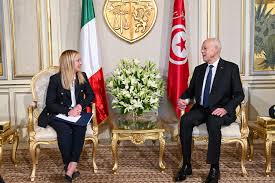
Tunisia has launched a €55 million Italian credit line aimed at supporting small and medium-sized enterprises (SMEs), but experts warn that structural challenges may limit its impact.
The Confederation of Tunisian Citizen Enterprises (CONECT) announced a series of information sessions across several governorates, including Jendouba, Sidi Bouzid, Mahdia, Sfax, and Kairouan. The sessions, organized in partnership with the Italian Agency for Development Cooperation (AICS), are intended to guide entrepreneurs on application procedures and eligibility for the financing initiative, officially called “55.” Advisory services will also be provided to help SMEs access the funds.
“This initiative seeks to promote regional development and strengthen the capacity of Tunisian SMEs,” said a CONECT spokesperson.
However, Tunisia’s SMEs, which account for more than 90% of the national economy, face persistent hurdles. High financing costs, limited access to bank credit, and burdensome administrative procedures continue to stifle growth. Data from the Central Bank indicates that, despite a key interest rate of 2.25%, high bank margins effectively restrict credit to smaller, less structured enterprises.
Observers caution that the €55 million, while welcome, is modest relative to the extensive financial needs of Tunisian SMEs. Many face cash flow constraints, technological gaps, and difficulties accessing foreign markets. Concerns are also mounting over whether the support will extend beyond credit to include training, governance assistance, and export facilitation.
The selection of regions such as Sidi Bouzid and Kairouan—historically socioeconomically marginalized—reflects an effort to reduce territorial inequalities. Yet past initiatives have highlighted delays in disbursement, bureaucratic hurdles, and a lack of post-financing follow-up. Critics fear that only a minority of well-established firms will benefit, leaving more vulnerable enterprises behind.
CONECT is urging entrepreneurs to “actively participate” in the programme, framing it as both an economic and diplomatic effort. Analysts stress that for the Italian loan to have a meaningful ripple effect, it must be coupled with comprehensive reforms addressing regulatory instability, taxation pressures, and corruption, which continue to impede SME growth in Tunisia.
The €55 million credit line offers a potential lifeline, but its ultimate success will depend on execution and systemic support beyond mere funding.



